Intro
Discover how low blood cell count impacts health, causing fatigue, weakness, and increased infection risk, affecting overall wellbeing, and requiring medical attention to prevent severe complications.
Having a low blood cell count can significantly impact an individual's overall health and well-being. Blood cells, including red blood cells, white blood cells, and platelets, play crucial roles in maintaining the body's functions, such as transporting oxygen, fighting infections, and promoting blood clotting. A low blood cell count, also known as cytopenia, can be caused by various factors, including bone marrow disorders, vitamin deficiencies, and certain medications. In this article, we will delve into the effects of low blood cell count on health, exploring the different ways it can manifest and the potential consequences.
Low blood cell count can have far-reaching implications, affecting not only the individual's physical health but also their mental and emotional well-being. For instance, a decrease in red blood cells can lead to anemia, causing fatigue, weakness, and shortness of breath. On the other hand, a low white blood cell count can increase the risk of infections, making it challenging for the body to fight off even minor illnesses. Furthermore, a decrease in platelets can lead to bleeding disorders, making it difficult for the body to form blood clots and stop bleeding.
The importance of maintaining a healthy blood cell count cannot be overstated. Blood cells are the body's workhorses, working tirelessly behind the scenes to keep the body functioning properly. When the blood cell count is low, it can have a ripple effect, impacting various aspects of health and increasing the risk of complications. In this article, we will explore the different ways low blood cell count can affect health, including the effects on physical health, mental health, and overall well-being.
Introduction to Low Blood Cell Count
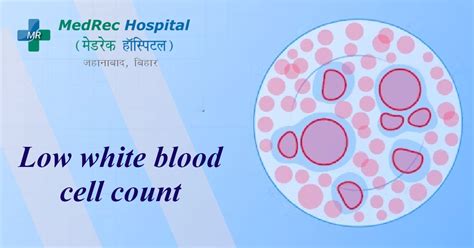
Types of Low Blood Cell Count
There are several types of low blood cell count, each with its unique causes and effects. Anemia, for instance, is a condition characterized by a decrease in red blood cells, which can be caused by iron deficiency, vitamin deficiency, or chronic diseases such as kidney disease or cancer. Leukopenia, on the other hand, is a condition characterized by a low white blood cell count, which can increase the risk of infections. Thrombocytopenia is a condition characterized by a low platelet count, which can lead to bleeding disorders.Effects of Low Blood Cell Count on Physical Health
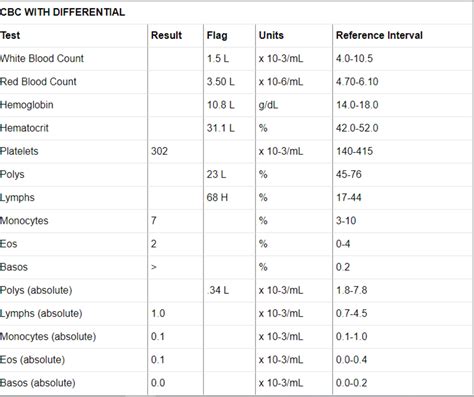
Some of the common effects of low blood cell count on physical health include:
- Fatigue and weakness
- Shortness of breath
- Increased risk of infections
- Bleeding disorders
- Pale skin
- Headaches
- Dizziness
Causes of Low Blood Cell Count
There are several causes of low blood cell count, including: * Bone marrow disorders * Vitamin deficiencies * Certain medications * Chronic diseases such as kidney disease or cancer * Infections such as HIV or tuberculosis * Autoimmune disorders such as rheumatoid arthritis or lupusEffects of Low Blood Cell Count on Mental Health
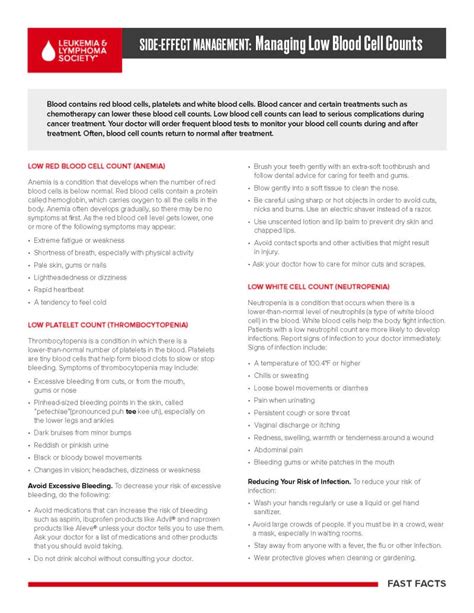
Some of the common effects of low blood cell count on mental health include:
- Anxiety
- Depression
- Cognitive impairment
- Mood swings
- Irritability
- Difficulty concentrating
Managing Low Blood Cell Count
Managing low blood cell count requires a comprehensive approach, including lifestyle modifications, dietary changes, and medical treatment. Some of the ways to manage low blood cell count include: * Eating a healthy diet rich in iron, vitamin B12, and folate * Avoiding certain medications that can suppress the bone marrow * Getting regular exercise to improve circulation and boost the immune system * Practicing stress-reducing techniques such as meditation or yoga * Getting enough sleep to help the body recover and repair itselfDiagnosis and Treatment of Low Blood Cell Count
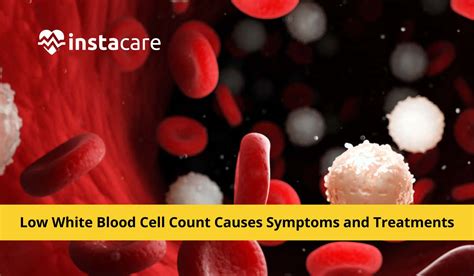
Some of the common treatments for low blood cell count include:
- Medications to stimulate blood cell production
- Vitamin supplements such as iron, vitamin B12, and folate
- Blood transfusions to replace red blood cells, white blood cells, or platelets
- Bone marrow transplantation to replace damaged or diseased bone marrow
- Lifestyle modifications such as eating a healthy diet, getting regular exercise, and practicing stress-reducing techniques
Preventing Low Blood Cell Count
Preventing low blood cell count requires a proactive approach, including lifestyle modifications, dietary changes, and regular health check-ups. Some of the ways to prevent low blood cell count include: * Eating a healthy diet rich in iron, vitamin B12, and folate * Avoiding certain medications that can suppress the bone marrow * Getting regular exercise to improve circulation and boost the immune system * Practicing stress-reducing techniques such as meditation or yoga * Getting enough sleep to help the body recover and repair itselfComplications of Low Blood Cell Count
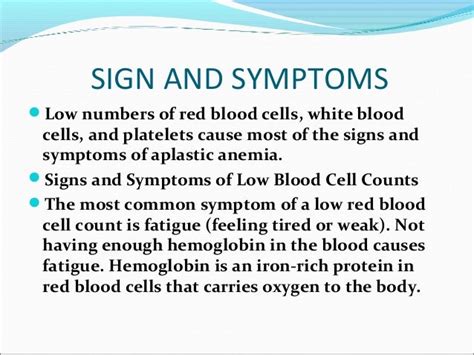
Some of the common complications of low blood cell count include:
- Infections
- Bleeding disorders
- Anemia
- Organ damage
- Cognitive impairment
- Increased risk of mortality
Living with Low Blood Cell Count
Living with low blood cell count requires a comprehensive approach, including lifestyle modifications, dietary changes, and medical treatment. Some of the ways to manage low blood cell count include: * Eating a healthy diet rich in iron, vitamin B12, and folate * Avoiding certain medications that can suppress the bone marrow * Getting regular exercise to improve circulation and boost the immune system * Practicing stress-reducing techniques such as meditation or yoga * Getting enough sleep to help the body recover and repair itselfConclusion and Next Steps

We invite you to share your thoughts and experiences with low blood cell count in the comments section below. If you have any questions or concerns, please do not hesitate to reach out to us. Additionally, we encourage you to share this article with others who may be affected by low blood cell count, and to take the necessary steps to prioritize your health and well-being.
What are the common causes of low blood cell count?
+The common causes of low blood cell count include bone marrow disorders, vitamin deficiencies, certain medications, chronic diseases such as kidney disease or cancer, infections such as HIV or tuberculosis, and autoimmune disorders such as rheumatoid arthritis or lupus.
What are the effects of low blood cell count on physical health?
+The effects of low blood cell count on physical health include fatigue, weakness, shortness of breath, increased risk of infections, bleeding disorders, pale skin, headaches, and dizziness.
How can low blood cell count be managed and treated?
+Low blood cell count can be managed and treated through lifestyle modifications, dietary changes, and medical treatment, including medications to stimulate blood cell production, vitamin supplements, and blood transfusions.
